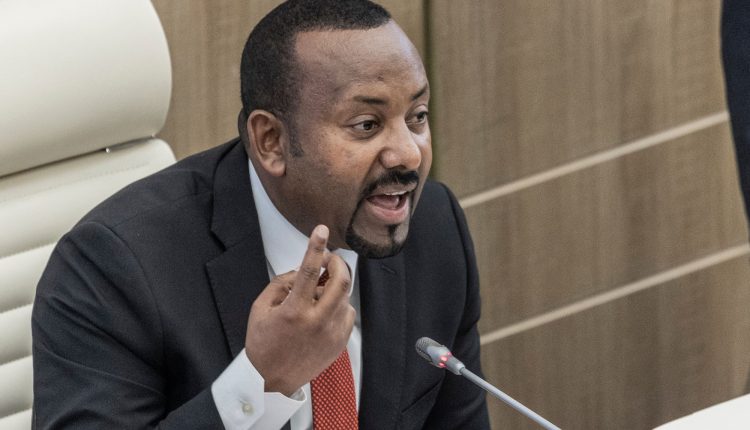Sep 03 (Jowhar)-The Prime Minister of Ethiopia, Abiy Ahmed, has been facing criticism and challenges during his time in office. Despite initially being hailed as a reformer and peacemaker, Abiy’s leadership has come under scrutiny for a variety of reasons.
One of the main issues with Abiy’s leadership is his handling of the ongoing conflict in the Tigray region. The conflict, which began in November 2020, has resulted in widespread violence, displacement, and humanitarian crisis.
Abiy’s government has been accused of committing human rights abuses, including extrajudicial killings, torture, and sexual violence. The Prime Minister’s decision to deploy military forces in Tigray has been criticized as heavy-handed and disproportionate.
Additionally, Abiy’s government has been criticized for its crackdown on political dissent and press freedom. Opposition leaders and journalists have been arrested and detained, leading to concerns about the erosion of democracy and freedom of speech in Ethiopia. The government has also been accused of using anti-terrorism laws to silence critics and suppress dissent.
Furthermore, Abiy’s handling of the conflict with neighboring country Eritrea has been controversial. The Prime Minister was awarded the Nobel Peace Prize in 2019 for his role in ending the longstanding conflict between Ethiopia and Eritrea. However, recent reports suggest that Eritrean forces have been involved in the conflict in Tigray, leading to allegations of human rights violations and war crimes.
Overall, Abiy Ahmed’s leadership has been marred by accusations of human rights abuses, crackdown on political dissent, and controversial handling of conflicts. Despite his initial promises of reform and peace, many Ethiopians are disillusioned with his leadership and are calling for accountability and justice.
The international community has also raised concerns about the situation in Ethiopia and has called for a peaceful resolution to the ongoing conflicts.
Ethiopia’s Prime Minister Abiy does not want force in Somalia
Ethiopian Prime Minister Abiy Ahmed has made it clear that he does not support the use of force in Somalia. In a recent statement, he emphasized the importance of dialogue and diplomacy in resolving conflicts in the region.
Somalia has been plagued by violence and instability for decades, with various factions vying for power and control. The presence of foreign troops, including Ethiopian forces, has only added to the complexity of the situation.
Prime Minister Abiy’s stance on the issue is significant, as Ethiopia has played a key role in the conflict in Somalia in the past. However, he seems to be taking a different approach now, advocating for peaceful solutions instead of military intervention.
Abiy’s commitment to diplomacy and dialogue is a welcome change in a region that has seen far too much bloodshed and suffering. By promoting peaceful resolution of conflicts, he is setting a positive example for other leaders in the region to follow.
It remains to be seen how Abiy’s stance will impact the situation in Somalia, but his message of peace and non-violence is certainly a step in the right direction. Hopefully, other leaders will take note and work towards finding peaceful solutions to the conflicts that continue to plague the region.
Ethiopian Prime Minister Abiy does not want force in the Somali Sea?
Ethiopian Prime Minister Abiy Ahmed has made it clear that he does not want to see any use of force in the Somali Sea. This declaration came after tensions between various countries in the region have escalated over the issue of maritime borders and the exploitation of resources in the area.
The Somali Sea is a strategic waterway that is crucial for international trade and commerce, as well as for the fishing industry. However, disputes over maritime boundaries have led to conflicts between countries in the region, including Somalia, Kenya, and Ethiopia.
In recent months, there have been reports of increased military presence in the Somali Sea, with countries like Kenya and Somalia engaging in a show of force to assert their claims over the disputed waters. Prime Minister Abiy’s statement is a clear message to all parties involved that he does not support any use of force to resolve these disputes.
Instead, Abiy has called for peaceful and diplomatic means to address the issues in the Somali Sea. He has emphasized the importance of cooperation and dialogue between countries in the region to find a mutually beneficial solution that respects the rights and interests of all parties involved.
The Ethiopian Prime Minister’s stance on the issue is a welcome development in a region that has been plagued by conflict and instability for many years. By advocating for peaceful and diplomatic solutions, Abiy is demonstrating his commitment to promoting peace and stability in the region.
It remains to be seen whether other countries in the region will heed Abiy’s call for peaceful resolution of the disputes in the Somali Sea. However, his statement serves as a reminder of the importance of dialogue and cooperation in resolving conflicts and ensuring the sustainable use of the region’s resources.

